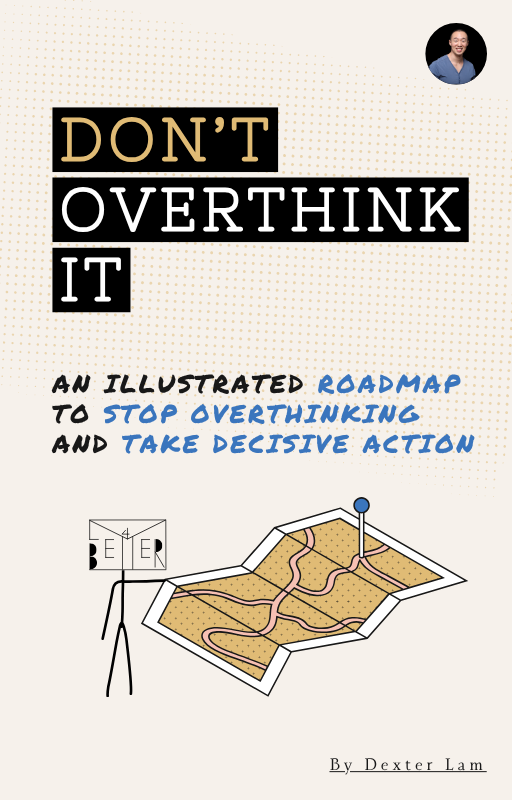Write your awesome label here.
Full Transcript of Change How You See Stress Forever | Cortisol vs DHEA Explained
[00:00] Intro - Rethinking What Stress Really Means
Okay, so you've probably heard that stress is bad for you. And there's a lot of negative connotations when it comes to stress because it is bad for your immune system, it causes you to be anxious, have burnout, and it drains your energy. But I want to clear up some of the misconceptions when it comes to stress and specifically cortisol. Because when we think about the word “stress,” we think of it as a negative, but it's actually neutral.
And that’s because the definition of stress is just your body mobilizing energy to meet a challenge or demand. This isn’t good or bad, it’s about how you perceive or believe that demand to be. And that’s where your mindset plays a huge role in how stress impacts you.
[01:02] Two People, Same Stress, Different Reactions
Let’s take two people at work who need to meet a deadline. One person can view this deadline as something highly stressful in a negative sense. They're unprepared, overwhelmed, and that causes them to view the stress as a threat.
On the flip side, the other person could view the same deadline as excitement, something that gives them energy and meaning. Because of that, their physiology will be different; they're rising up to the challenge, but they're still under stress. So what ends up happening is two different people having two different responses to the same stressor.
[01:43] The Three Main Stress Hormones
Now your body releases three primary chemicals when it comes to stress by your adrenal gland, which is cortisol, adrenaline, and also something called DHEA.
Cortisol really gets a bad reputation because it's often called the stress hormone. But cortisol is actually what helps you wake up in the morning. Usually, 30 to 45 minutes before you wake up, cortisol spikes while you're sleeping. That’s what mobilizes energy so that you can be alert and ready for the day.
That’s why if you've ever taken melatonin to go to sleep, melatonin is what helps you rest, while cortisol helps you rise. There’s a balance between your cortisol and your melatonin.
[02:30] Understanding Cortisol: The Misunderstood Hormone
Now the thing is, when it comes to cortisol, when cortisol increases, this is what helps to kind of suppress some unnecessary immune functions at that point in time. Because when your cortisol levels raise, your heart races, blood pressure rises, and glucose gets flooded into your system basically to help you to rise up to the challenge.
And that's where that idea for cortisol and stress is that these stress responses either fight, flight or freeze, or in another sense, for focus. So when you think about cortisol, cortisol isn't bad. It's only bad when it's prolonged. Just like stress isn't bad, it's only bad when it's chronic stress, which is prolonged durations of elevated cortisol levels, which can equate to what we call burnout.
So that's when it starts to become bad. Because you're wired but tired and your immune system starts to break down because you are in this heightened state for an extended period of time and you're not releasing that cortisol. And that is what becomes a negative impact on your body.
[03:50] DHEA - The Other Side of the Stress Equation
Now, when I mentioned earlier about one of the other three stress hormones, which is DHEA. This one goes in conjunction with your cortisol. So it's usually more of a ratio issue than whether you just have cortisol in your body, because cortisol is what shuts down your immune function and mobilizes energy.
While DHEA, on the other hand, this is what helps with brain repair and immune function. So it's more of a balance between the ratios. So going back to an example of if someone is stressed but they're viewing the stress as bad, then usually their cortisol ratio will be higher cortisol and less DHEA versus someone who is viewing the stress as a challenge. Then they're actually viewing it from a different lens.
And because of that, you can have more DHEA in that ratio. And that's where you can actually have recovery and build resilience through that stress. So it's really about how you frame the stress in your mind that changes the overall outcome of whether that breaks down your body or helps you to grow and also learn from the stress or challenge that you've been given.
Enjoying the Read?
Weekly Mindset Newsletter
Get personal stories, decision-making strategies, and mental frameworks to help you stop overthinking, build self awareness, and live with more clarity.
Thank you!
[05:11] Why Stress Means You Care
And that's kind of what I want to talk about today because I think cortisol and stress get a bad rep. And that's not always the case. And the thing is, having a healthy amount of stress is actually good because if you really think about it, in the scenario of two people working and one is stressed out of it feeling bad and one stressed because it's exciting.
The thing is, in both those cases, the reason why they're feeling stressed is because they care. That means there's meaning assigned behind what they're doing, which is creating stress because they care about their job. And that is what's creating the stress. But the physiological response to that stress is the difference that I want to point out, which is in relation to your mindset around it.
[06:05] Perception Shapes Your Stress Response
Another example is if you think about working out. Someone could be sedentary, sitting at a desk working, and they're stressed and feeling burnt out, so their cortisol levels are rising and they stay elevated. And that's more bad for you than someone who's exercising. But they're still feeling that same stress because the way that they're perceiving the stress is ultimately different.
And that is what changes it. But in terms of the physical response, it could be the same. Two people could be exercising and one person seeing it as dreadful and the other person seeing it as exciting, and they're both under stress and under physical stress and mental stress, but they're viewing it differently. And because of that, the way that their body responds over time is drastically different.
[06:56] How Your View of Stress Affects Mortality (The Stanford Study)
There's a Stanford research study that showed this where people who viewed stress as a threat tend to die faster than people who viewed stress as a challenge. And just that mental reframe alone is what kind of increased the mortality rate of the people who viewed stress as a threat.
So this is really the power of your mind when it comes to stress. And that's why certain people handle stress a lot better than others. And it all comes from their viewpoint of their stress.
[07:31] Closing - Stress Is Neutral, You Decide Its Meaning
This is not to put down or make it sound like stress is easy. It's definitely not. And stress can be bad for sure. And in many cases we do experience negative stress. So stress is a bad thing in many ways, but changing our relationship to the stress and having that reframe to view it from a threat to being something that's exciting can help to increase the DHEA levels in your body, to balance out the cortisol.
And that is just something that you can do within your head, which will change your whole biological response. So that's all I wanted to say about stress and why it is neutral. It's not something that's bad or good. It's just your body's response to gear up for rising up to the occasion for a challenge or demand. But how you perceive it has a greater impact on your overall health.
So I hope this helps you.
My name is Dexter Lam and have a wonderful day.
Bye bye.
My name is Dexter Lam and have a wonderful day.
Bye bye.


